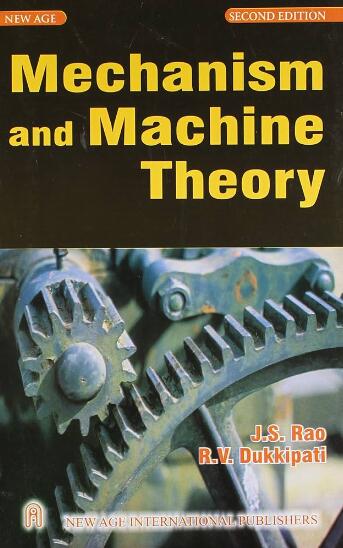制造不确定性下大行程柔性恒转矩机构的鲁棒设计与优化
IF 4.5
1区 工程技术
Q1 ENGINEERING, MECHANICAL
引用次数: 0
摘要
柔性恒扭矩机构(CCTMs)能够在大范围的输入旋转角度内提供稳定的输出扭矩。由于其紧凑的设计和结构简单,它们提供了一个有吸引力的替代复杂的主动控制系统,并在近几十年来获得了相当大的研究关注。在许多情况下,特别是那些涉及大行程的应用,cctm是用传统的减法加工方法由薄挠曲梁制成的,这使得它们容易受到制造引起的变化的影响,这可能会损害性能。本研究提出了一个集成的设计和优化框架,明确地考虑了制造的不确定性,提高了大行程cctm的可靠性。将链梁约束模型、一阶可靠性方法和非支配排序遗传算法II相结合,建立了基于可靠性的设计优化流程。优化后的CCTM恒转矩范围可达88°,平均转矩偏差在3%以内,可靠性为99.88%。理论分析、有限元模拟和实验验证证实了该框架在提供适合精密应用的鲁棒和高性能cctm方面的有效性。本文章由计算机程序翻译,如有差异,请以英文原文为准。
Robust design and optimization of a large-stroke compliant constant-torque mechanism under fabrication uncertainties
Compliant constant-torque mechanisms (CCTMs) are capable of delivering a stable output torque across a wide range of input rotational angles. Owing to their compact design and structural simplicity, they offer an attractive alternative to complex active control systems and have gained considerable research attention in recent decades. In many cases, particularly those involving large-stroke applications, CCTMs are fabricated from thin flexure beams using conventional subtractive machining methods, which makes them vulnerable to fabrication-induced variations that may compromise performance. This study presents an integrated design and optimization framework that explicitly accounts for fabrication uncertainties, enhancing the reliability of large-stroke CCTMs. By combining the Chained Beam-Constraint Model, the First-Order Reliability Method, and the Non-dominated Sorting Genetic Algorithm II, a reliability-based design optimization procedure is established. The optimized CCTM demonstrates a constant torque range up to 88°, an average torque deviation within 3%, and a reliability of 99.88%. Theoretical analyses, finite element simulations, and experimental validation confirm the framework's effectiveness in delivering robust and high-performance CCTMs suitable for precision applications.
求助全文
通过发布文献求助,成功后即可免费获取论文全文。
去求助
来源期刊

Mechanism and Machine Theory
工程技术-工程:机械
CiteScore
9.90
自引率
23.10%
发文量
450
审稿时长
20 days
期刊介绍:
Mechanism and Machine Theory provides a medium of communication between engineers and scientists engaged in research and development within the fields of knowledge embraced by IFToMM, the International Federation for the Promotion of Mechanism and Machine Science, therefore affiliated with IFToMM as its official research journal.
The main topics are:
Design Theory and Methodology;
Haptics and Human-Machine-Interfaces;
Robotics, Mechatronics and Micro-Machines;
Mechanisms, Mechanical Transmissions and Machines;
Kinematics, Dynamics, and Control of Mechanical Systems;
Applications to Bioengineering and Molecular Chemistry
 求助内容:
求助内容: 应助结果提醒方式:
应助结果提醒方式:


